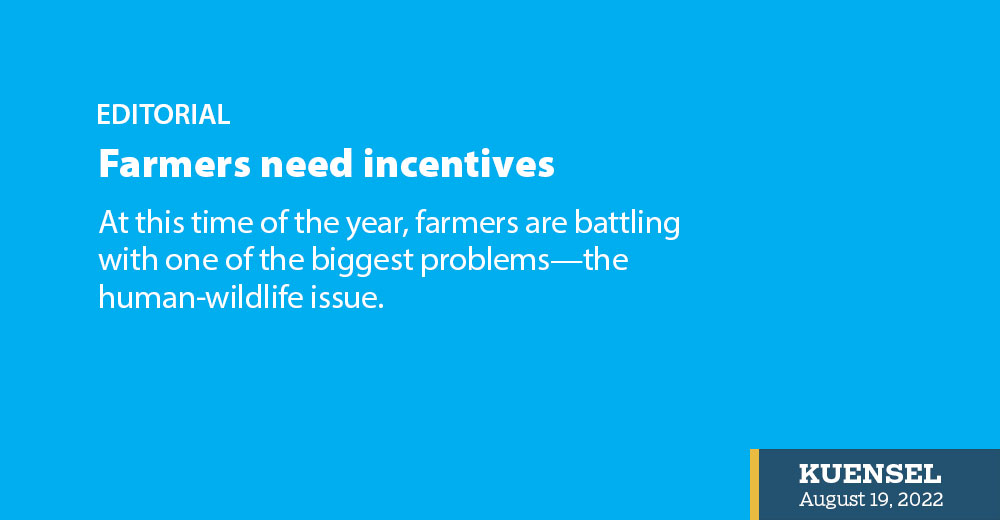At this time of the year, farmers are battling with one of the biggest problems—the human-wildlife issue.
Lives are being lost and crops are being plundered and marauded. For farmers who toil day in and day out to secure their sustenance, such destructions are costly.
The issue stems from a lack of vision. And our laws related to the preservation of culture and environment are not helping the rural folks.
We talk about power tillers from donor countries, and we have programmes to develop and adopt new farming methods to increase agricultural production.
For the agriculture ministry, rolling out programmes is easy. What happens after the programmes in the villages, sadly, is not accounted for. There is no follow-up.
This must change. The policies should benefit the people. This is not happening.
For a country like Bhutan with a huge potential in the agriculture sector, not investing in it can have a far-reaching impact. We are already selling ourselves to the world as “organic” brand.
Branding ourselves as organic is one thing; not being able to feed ourselves is a different thing altogether. Food import has been increasing by the year.
What our policy-makers do not seem to understand is that depending on food import can hit hard on our sovereignty. This is a very serious issue. Set aside your patang, gyentag and the many perks for a while and put yourself in the shoes of the farmers.
When the nation can produce enough, we do not depend on others. When we do not depend on others for basic necessities, we can chart our own development path.
So we come back to the difficulties facing the farmers. First, a large number of people are leaving their villages for better opportunities in bigger towns. In the villages, so, is an acute shortage of farmhands. The problem is aggravated by conservation laws that affect the farmers more.
The time has come for Bhutan to incentivise farmers in more innovative ways. Power tillers were good then. No doubt. We need now to focus more on production and marketing.
Changing conservation laws is an option. Our farmers need reasons to work in the fields.


